Back to Basics: Types of Flooring
Everyone’s got their passion: People who are into technology are techies. Those who are really into food are foodies. Me? I love wood floors. I guess that makes me a woody? But as much as I love wood floors there are several different types of flooring that can be equally as great for various reasons.
“Hardwood flooring throughout” – that’s the number one phrase that pops up in North American real estate listings, hands down. And while real hardwood may be perceived as the most desirable, there are other options that look great and are affordable and durable. I’m breaking down everything you need to know about the real, the semi-real, and the fake wood you find under your feet.
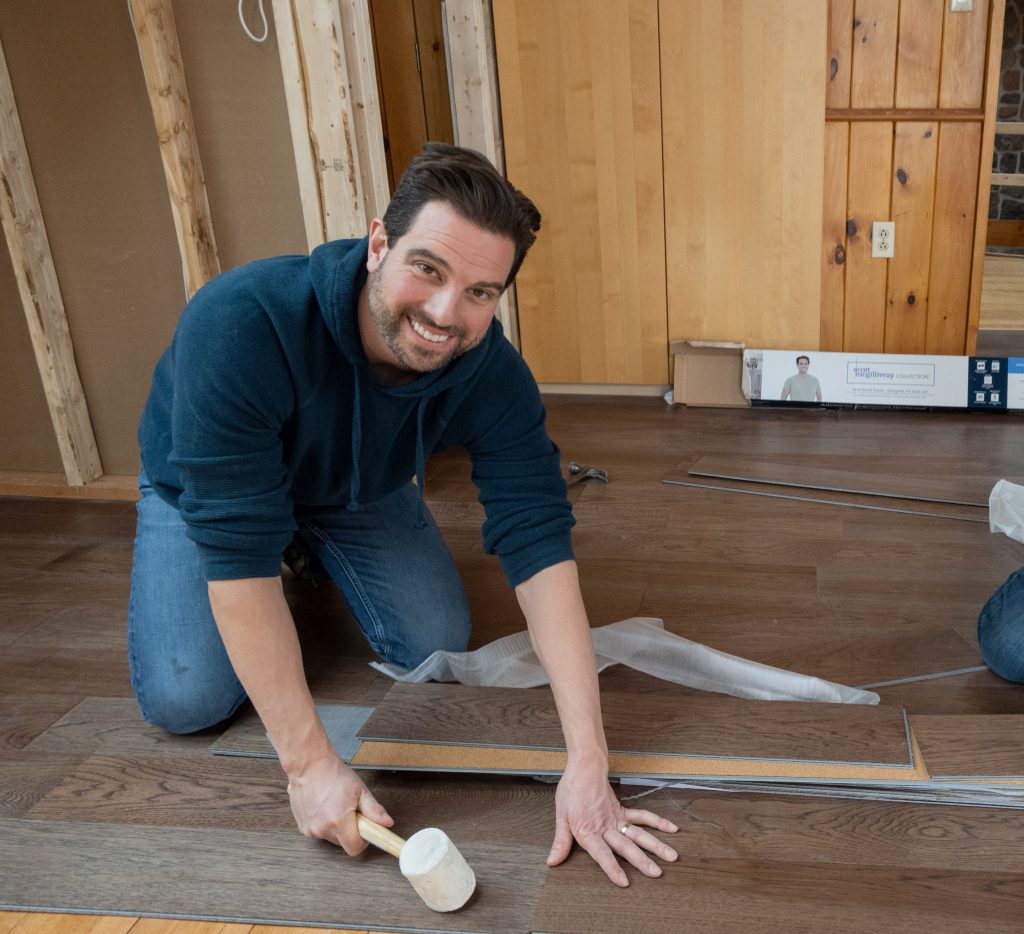
Hardwood (Solid)
What is it? In this case, it’s all in the name. Real, solid hardwood floors are made from solid pieces of wood (usually 3/4 – inch thick). Popular species are maple, oak, ash, hickory, walnut, cherry, and more recently, bamboo. Plank sizes range from 1.5-inches to 8-inches.
Where can you use it? Given its susceptibility to moisture and humidity, real hardwood should only be used at or above grade, and in climates without drastic changes in humidity from season to season.
Pros: It’s the real deal. Plus, it can be sanded and refinished multiple times, which can save you big bucks on replacement cost down the road.
Cons: It’s prone to moisture and scratching. It’s also one of the priciest flooring options.
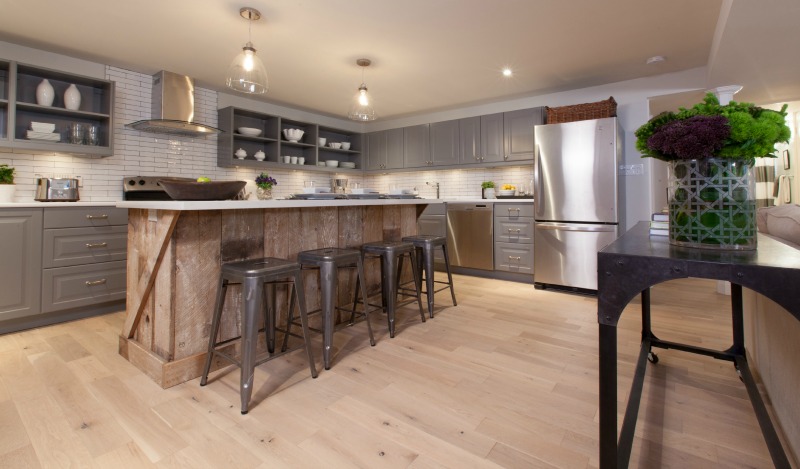
Hardwood (Engineered)
What is it? Engineered hardwood combines the best of both worlds – a layer of real, solid hardwood on the top, with several layers of interlaced plywood or fibreboard on the bottom – the same materials that make up laminate floors. What this means is that you get the look and finish of true hardwood, with the durability of a laminate.
Where can you use it? The beauty of engineered hardwood is that it’s nowhere near as susceptible to moisture and humidity as real hardwood, meaning that you can install it just about anywhere. In the case of my own line of advanced engineered hardwood, there’s an SPC waterproof core, meaning you put it anywhere in the house – including the basement.
Pros: Can’t tell the difference between it and real hardwood, but has none of the same issues.
Cons: Engineered hardwood can’t be re-finished as many times as true hardwood, if at all. You may have to settle for screening (removing the finish without sanding the actual floor).
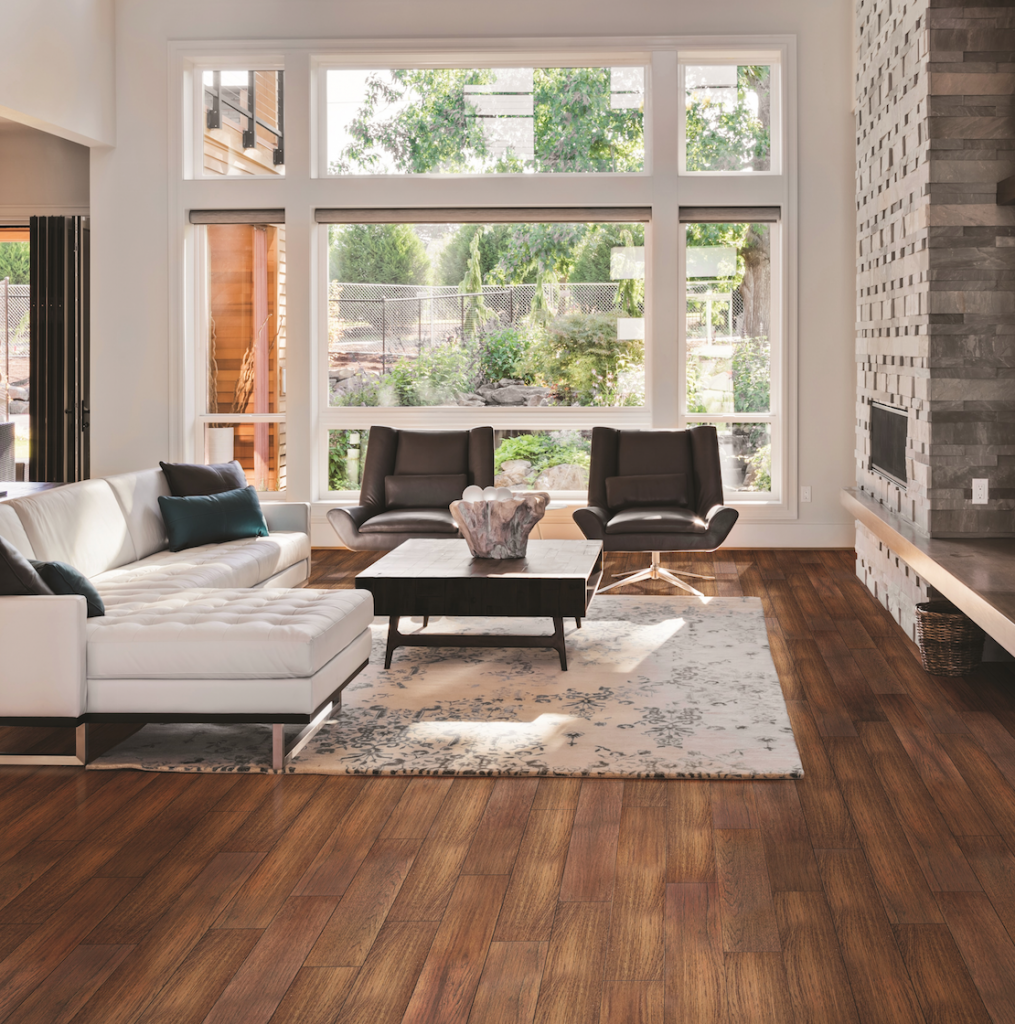
Laminate Flooring
What is it? Laminate floor is essentially layers of adhered fibreboard with an image of real wood printed on top.
Where can you use it? Just about anywhere. Much like engineered hardwood, laminate isn’t affected by humidity and moisture in the same way as true hardwood, making it a popular choice for below, at, or above grade.
Pros: It’s inexpensive and durable.
Cons: Depending on the quality, it can look close to hardwood, but chances are you’re not going to be fooling anyone.
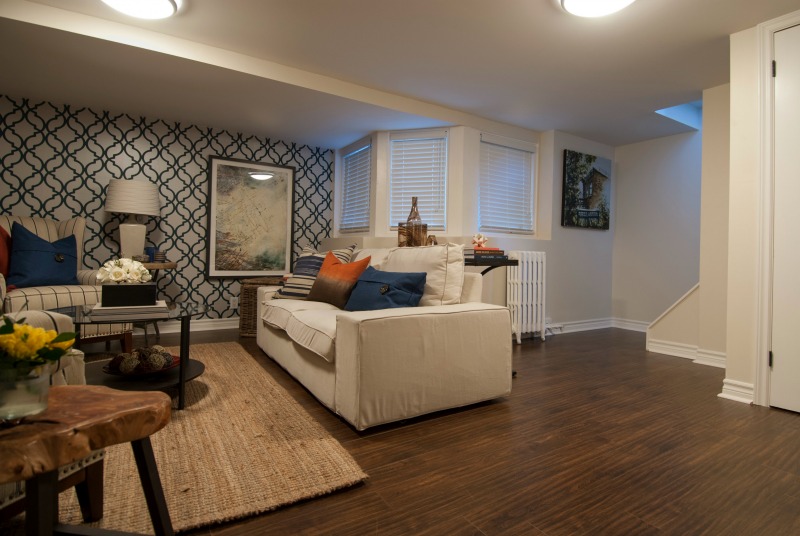
Vinyl Flooring
What is it? Vinyl flooring can refer to several different products – sheet vinyl, vinyl tiles (sometimes LVT – luxury vinyl tiles), or, vinyl plank (sometimes LVP – luxury vinyl plank). Vinyl flooring is also often referred to as resilient flooring. Whatever you call it, it’s all basically the same thing – pieces of vinyl that are either printed with a pattern, or, an image that mimics stone or wood (much like laminate). Vinyl plank flooring, which is made to mimic hardwood, has come a long way and I like it so much, that I created my own line of Advanced Luxury Vinyl Flooring.
Where can you use it? Vinyl plank flooring is extremely durable and waterproof, making it a natural choice for basements, bathrooms, and kitchens.
Pros: Besides being waterproof, vinyl plank flooring is also very thin, making it great for basements with low ceilings where you can’t afford to lose much height.
Cons: Vinyl plank flooring doesn’t bring the same ROI as other types of flooring and while it’s easy to install, your sub-floor must be in good shape, or imperfections will show through.
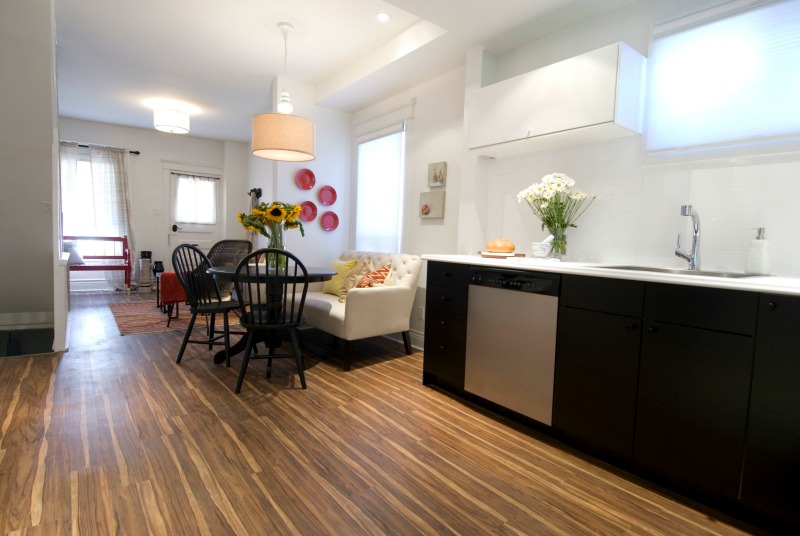
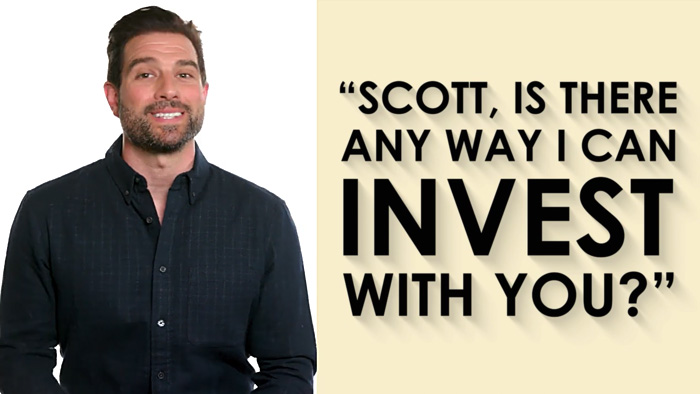
Comments